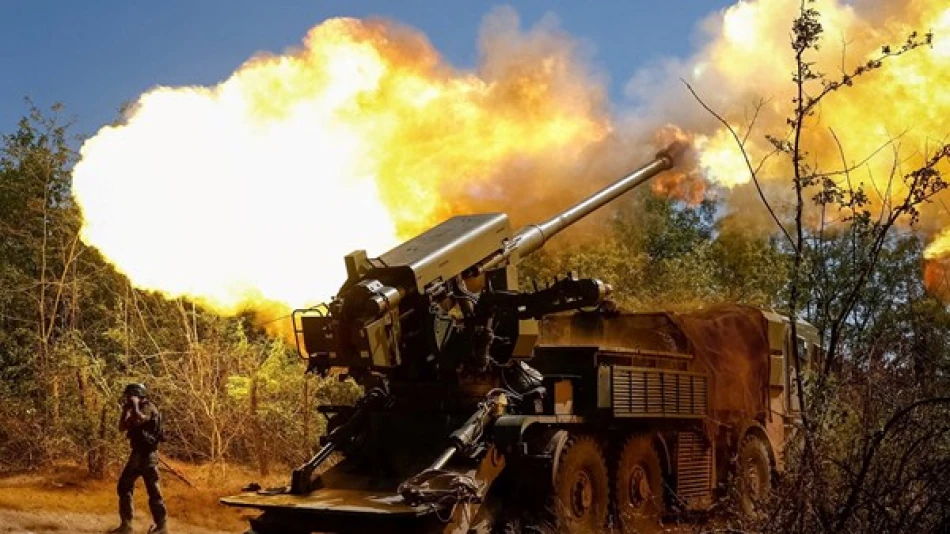
Erdogan and Zelenskyy Discuss Ukraine's Security Guarantees
Turkey Emerges as Key Mediator as Ukraine Seeks Written Security Guarantees
Ukrainian President Volodymyr Zelensky announced Thursday that Turkey is prepared to play a significant role in Ukraine's post-conflict security arrangements, with Ankara offering both military contributions and diplomatic mediation services. The development signals Turkey's growing influence as a regional power broker while Ukraine accelerates efforts to formalize international security commitments on paper within the next week.
Ankara's Dual-Track Approach: Security and Diplomacy
In a phone conversation between the two leaders, Turkish President Recep Tayyip Erdogan outlined Turkey's willingness to contribute on multiple fronts. Zelensky revealed via Telegram that Erdogan committed to involving Turkey's defense minister in exploring the country's potential security contributions, particularly in the strategically vital Black Sea region.
Simultaneously, Turkey's presidential office confirmed that Erdogan offered to facilitate high-level negotiations between Ukraine and Russia, positioning Ankara as both a potential security guarantor and peace mediator—a rare dual role in modern conflict resolution.
Black Sea: The Strategic Prize
Turkey's emphasis on Black Sea security reflects the waterway's critical importance to both regional stability and global grain supplies. As the controller of the Bosphorus and Dardanelles straits through the Montreux Convention, Turkey already holds significant leverage over naval access to the Black Sea. Any formal Turkish security commitment would essentially create a NATO-adjacent presence in waters Russia considers strategically vital.
Why Turkey's Position Matters Now
Turkey's offer comes at a crucial moment when Ukraine is actively seeking concrete security guarantees beyond verbal commitments. Unlike previous diplomatic initiatives, Zelensky's emphasis on getting arrangements "fully on paper" suggests a shift toward legally binding agreements rather than informal assurances.
This approach mirrors successful security frameworks like the Abraham Accords or the AUKUS partnership, where written commitments created lasting strategic realignments. For Ukraine, paper guarantees represent insurance against future political changes in allied capitals that might weaken support.
The Erdogan Advantage
Turkey brings unique credentials to this role. Unlike pure NATO allies, Ankara maintains diplomatic relations with Moscow while providing military support to Ukraine, including the highly effective Bayraktar TB2 drones. This balanced position allows Turkey to credibly engage both sides—something neither Washington nor Brussels can currently achieve.
Market and Strategic Implications
For defense contractors and regional energy markets, Turkey's enhanced role could reshape investment flows. Turkish defense companies like Baykar and Aselsan may see expanded opportunities in Ukraine's reconstruction, while energy routes through Turkish territory could gain additional strategic value.
The timing also benefits Turkey's broader geopolitical positioning. By offering concrete security contributions rather than just diplomatic rhetoric, Ankara strengthens its case for enhanced regional leadership while potentially improving its strained relationship with NATO allies.
Beyond Traditional Alliances
Ukraine's embrace of Turkish security guarantees reflects a pragmatic approach to building defense partnerships beyond traditional Western frameworks. Similar to how Gulf states have diversified their security relationships beyond the US umbrella, Ukraine appears to be constructing a multi-layered security architecture that includes regional powers with specific strategic advantages.
This strategy acknowledges that effective security guarantees require both capability and proximity—qualities Turkey possesses in abundance regarding Black Sea security. Whether this model proves sustainable will depend on Turkey's ability to balance its commitments to Ukraine with its complex relationship with Russia, but early indications suggest Ankara is prepared to take calculated risks for long-term strategic gains.
Most Viewed News

 Layla Al Mansoori
Layla Al Mansoori






